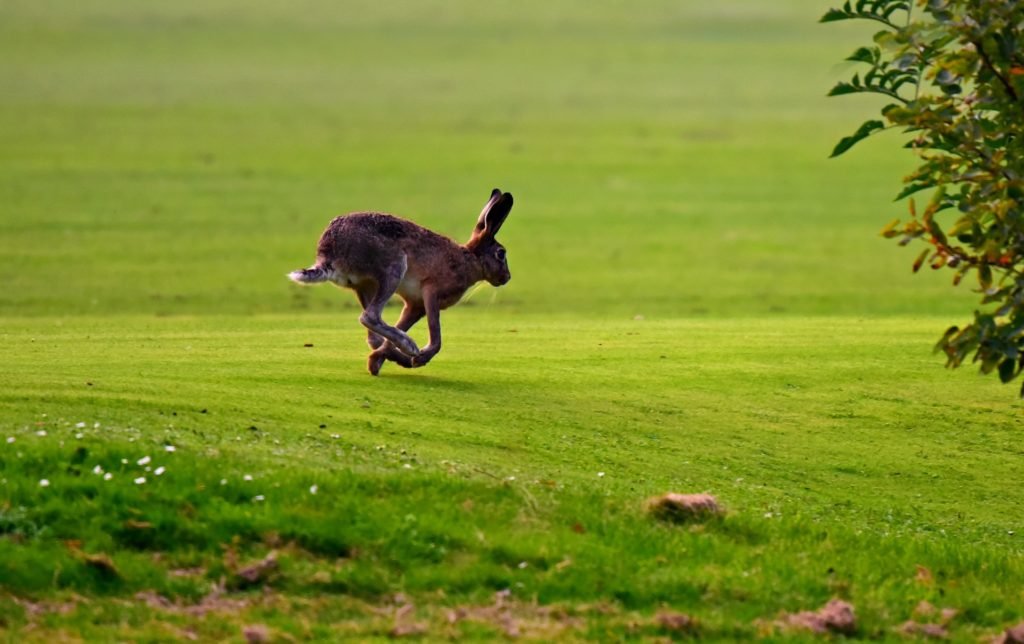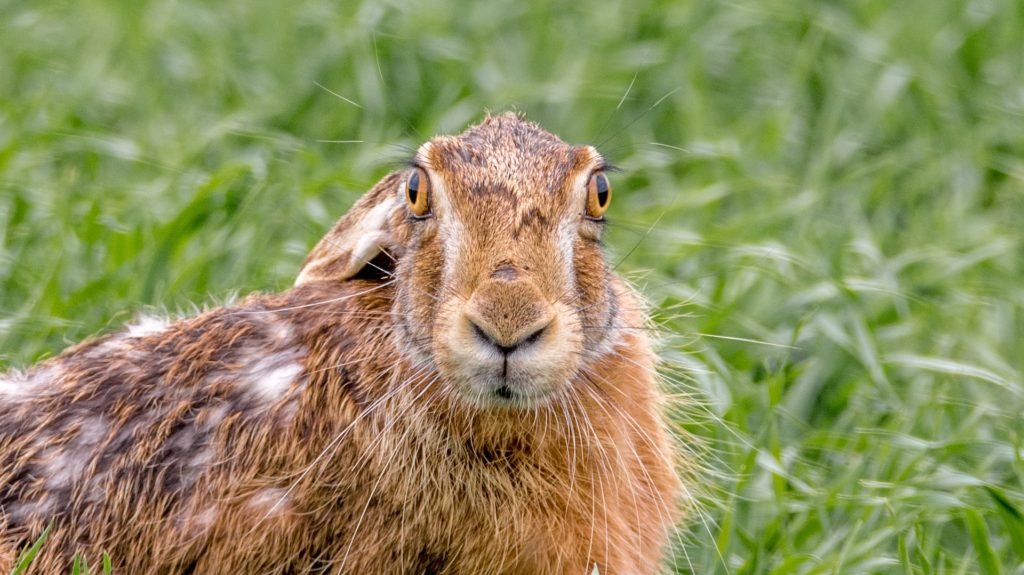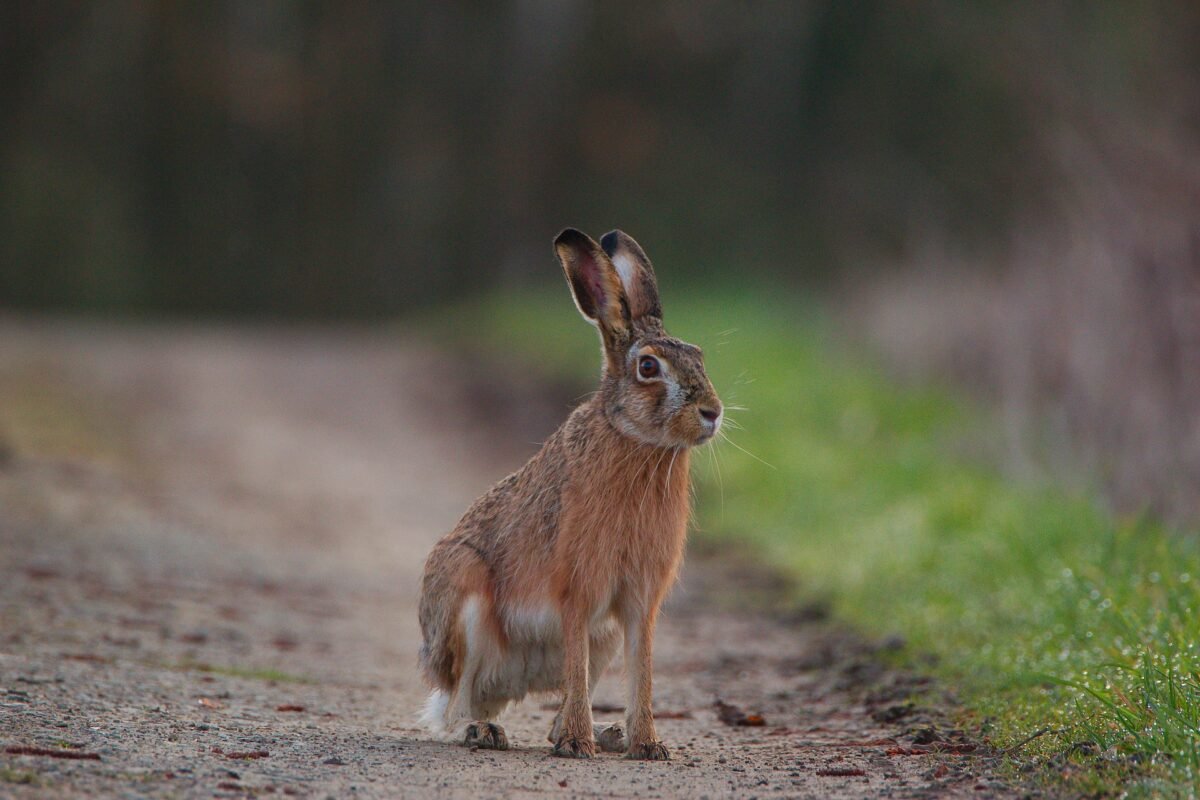Hares have no legal protection
It may come as a surprise to many that the iconic and much loved hare is designated as a pest and a game animal and unlike other game animals has no close season so is totally unprotected under UK law. Therefore, it has no respite at all from being killed and persecuted by poachers, coursers and hunters and some unsympathetic farmers.
I am lucky enough to live in an area of the UK where hares appear to be prolific judging by the fact that hardly a day goes by when I do not see them cavorting in the fields while I am driving past or when on walks. Not just individuals but sometimes five or six together. I count myself lucky to have so many up close encounters with them and I am always amazed at their size and sheer beauty. They have become one of my favourite UK wild mammals.
Sad then that they are the least protected of all “game” animals and that so many people seem to hate them. Game animals are those that over time hunters have decided are fair ‘game’ to be killed and eaten and over time have had this status enshrined in law. Most game animals have a “close” season of a few months usually during their breeding season to build up numbers to be hunted and shot for the rest of the year.
Give these animals a break
Philip Mansbridge, CEO of Care for the Wild International, said: “I think people would be shocked to know that the people who shoot hares are the ones who get to decide on whether or not there should be a close season. DEFRA needs to step in, involve wildlife organisations to get some balance, and give these animals a break.”
Unfortunately for the hare, a quirky antiquated 19th. century law called the Ground Game Act 1880 (can you believe that?) allows their legal shooting throughout the year including the breeding season, which stretches from February to September, leaving them the only game animal in England and Wales in this situation. Good old Scotland plus 18 European countries have a close season but not the animal loving UK.
Of course, the Countryside Alliance believes a close season would be detrimental to them and that their numbers are stable, so oppose any legislation, while conservationists and welfarists obviously beieve that killing lactating females thus causing the deaths of their dependent young is cruel.
They are being attacked on all sides by illegal hunting, legal shooting, pest control, disease and loss of suitable habitat and food sources

To compound things further they are also a designated pest being lumped together with the rabbit as an animal that rampages over the countryside destroying crops and eating the bark off trees during the winter when food becomes short. Their natural diet is grasses and herbs. Pest controllers are quick to point out that they carry fleas and carry a disease called Yersiniosis that can cause serious illness or death in humans, just to make them more disliked.
Their numbers allegedly constantly decline and it has been said that if they were not such quick breeders they would be extinct by now. Many decades ago there were some 4 million hares but estimates now put the figure anywhere between 6-800,000. No one really knows as few people have much interest in the poor creature so research is very outdated. There are some outlandish estimates of up to 400,000 being shot each year which on the face of it does not appear accurate.
Hedgerows and meadows, the preferred living areas for hares, have declined and the modern open farmed fields leave them exposed and vulnerable with less food. Herbicides and pesticides can be lethal to them. Hares have also suffered in recent years from the move away from mixed farming, which provided the variety of grassy habitats they need to feed and raise a family, to intensive arable or livestock production.
To add to their misery hares are now threatened by a rabbit disease haemorrhagic disease type 2 which causes lung bleeding and hepatitis and some scientists believe that mxymatosis may be spreading from rabbits to hares.
Let’s face it, hares could do with a few more friends.

The hares also have to face persecution by illegal hare coursing particularly in my area of East Anglia and no walk in the countryside can be completed without seeing signs nailed to gate posts asking for any suspicious behaviour to be reported to the police.
Ironically hares are supposedly a “priority species” under the UK biodiversity plan to increase numbers of vulnerable species. So, why is their protection such a low priority with few INTERESTED IN HELPING THEM?
There is a petition asking the government to make it illegal to shoot them that anyone interested in these wonderful creatures can sign.
